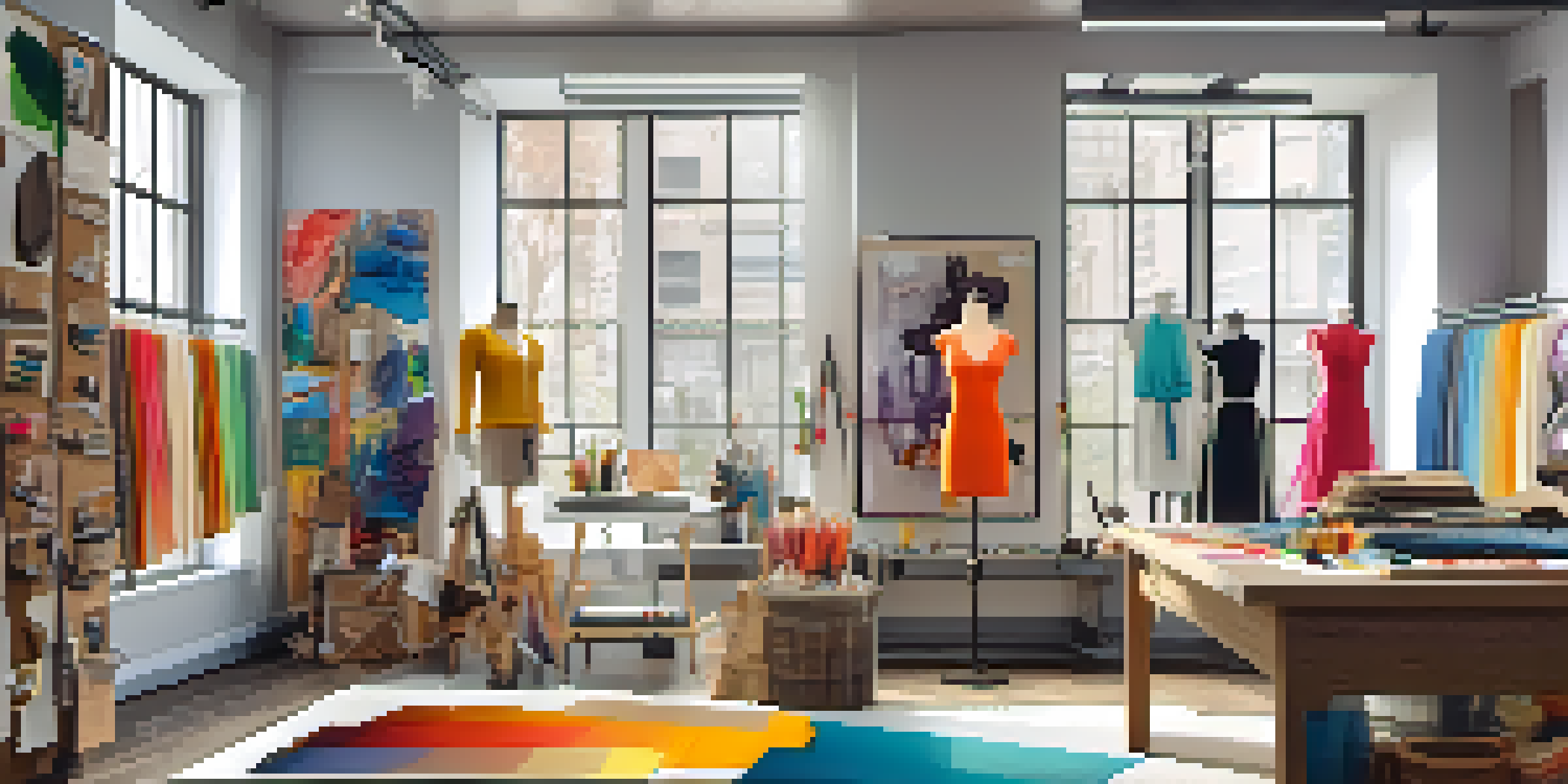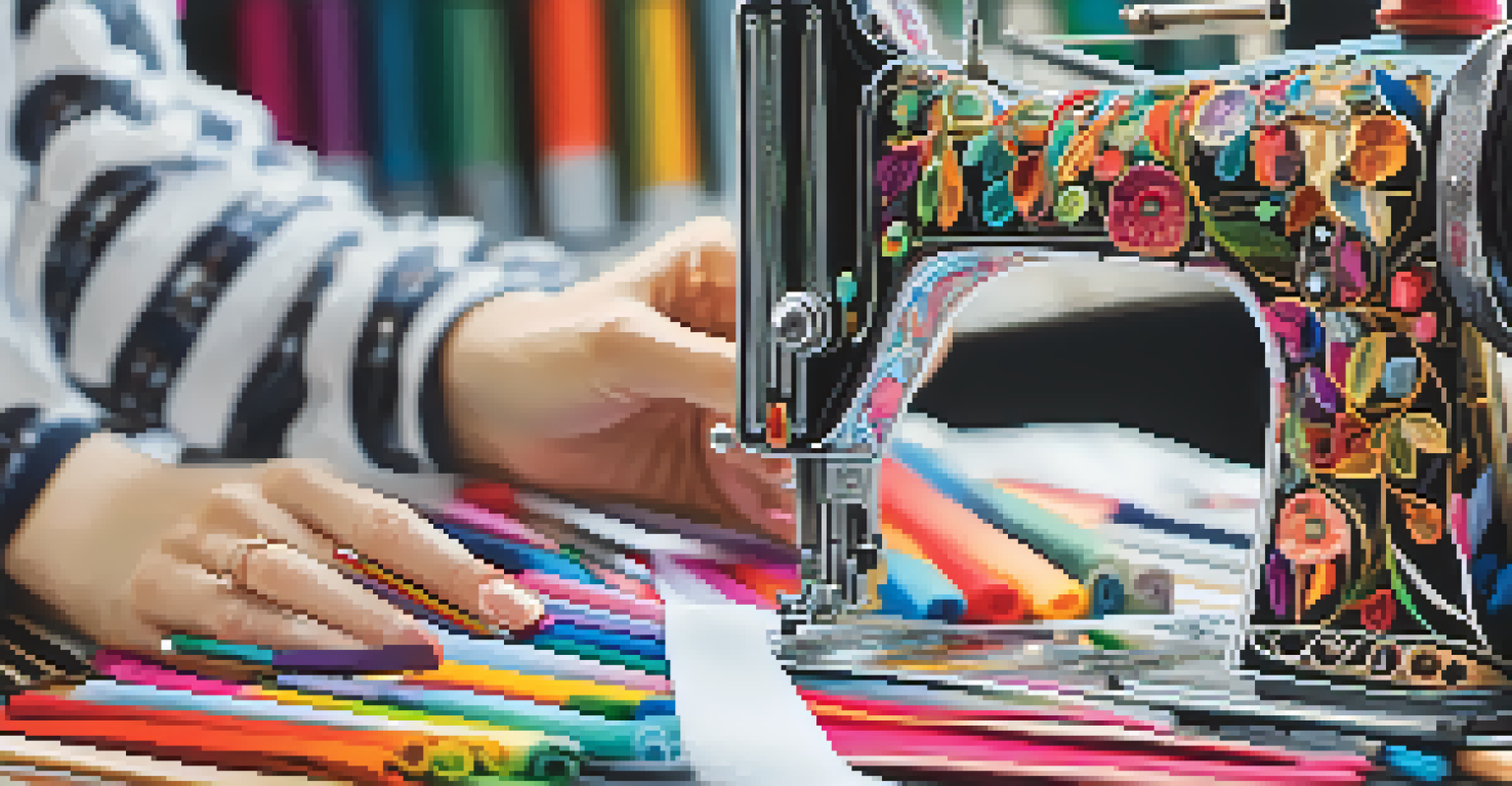Fashion Schools: What to Look for in Your Education

Understanding Your Career Goals in Fashion Education
Before diving into fashion schools, it's crucial to assess your career aspirations. Are you drawn to design, merchandising, or marketing? Knowing your goals will help you choose a program that aligns with your passions and professional ambitions.
Fashion is the armor to survive the reality of everyday life.
For instance, if you dream of becoming a fashion designer, look for schools with strong design programs. Conversely, if you see yourself in retail management, seek institutions that offer robust business courses tailored to the fashion industry.
This self-reflection ensures you select a fashion school that not only teaches you the skills you need but also nurtures your unique vision and strengthens your career path.
Researching Accreditation and Reputation of Schools
Accreditation is a vital factor when choosing a fashion school. Attending an accredited institution ensures that you receive a quality education recognized by employers across the industry.

Additionally, take the time to investigate the school's reputation. Reviews from alumni and industry professionals can provide insights into the school's strengths and weaknesses, helping you make an informed decision.
Define Your Fashion Career Goals
Understanding your career aspirations in fashion helps you select a school that aligns with your passions.
Remember, a well-regarded school can open doors for internships and job placements, giving you a competitive edge in the bustling world of fashion.
Evaluating Curriculum and Course Offerings
The curriculum is at the heart of your education, so take a close look at the courses offered. A good fashion program should provide a mix of theoretical knowledge and hands-on experience, from fashion history to practical design projects.
The most beautiful thing you can wear is confidence.
Consider whether the school offers specialized courses that match your interests, such as sustainable fashion or digital marketing. These niche topics can set you apart in your future career.
Moreover, inquire about opportunities for real-world experience, such as internships or collaborations with brands, as these can significantly enhance your learning and employability.
Exploring Faculty Credentials and Industry Connections
The qualifications of your instructors can greatly influence your education. Look for schools with faculty members who have substantial industry experience and a strong network in the fashion world.
Instructors with real-world experience can provide valuable insights, mentorship, and connections that are essential for your career development. Their guidance can help you navigate the complexities of the fashion industry more effectively.
Research School Accreditation
Choosing an accredited fashion school ensures you receive a quality education recognized by employers.
Additionally, schools with robust industry ties may offer exclusive internships and job placements, giving you a head start after graduation.
Considering Location and Networking Opportunities
The location of your fashion school can impact your education and career prospects. Attending a school in a fashion hub, like New York or Los Angeles, can provide you with unparalleled networking opportunities and exposure to influential brands.
Being close to major fashion events, trade shows, and industry gatherings allows you to connect with professionals and gain insights into the latest trends. These experiences are invaluable for building your professional network.
Ultimately, the right location can enhance your learning experience and open doors to future employment opportunities.
Assessing Facilities and Resources Available to Students
A school's facilities can greatly enhance your learning experience. Look for institutions with state-of-the-art design studios, fabric libraries, and technology resources that support hands-on learning.
Access to cutting-edge equipment and tools can make a significant difference in your education, allowing you to experiment and develop your skills more effectively. A well-resourced school sets you up for success in your projects.
Evaluate Curriculum and Resources
A comprehensive curriculum with hands-on experience and access to quality facilities enhances your learning journey.
Additionally, consider other resources like career counseling services, workshops, and networking events that can aid your professional growth while you study.
Understanding Financial Considerations and Aid Options
Financial considerations are often a significant factor in choosing a fashion school. Tuition costs can vary widely, so it’s essential to align your budget with your educational goals.
Research scholarship opportunities, financial aid options, and payment plans that schools offer. Many institutions provide assistance to help ease the financial burden and make quality education more accessible.

Understanding the total cost of attendance, including materials and living expenses, will help you plan effectively and make a sound investment in your future.
Seeking Alumni Success Stories and Outcomes
Alumni success can be a telling indicator of a school's quality. Investigate the achievements of graduates to gauge how well the school prepares its students for the fashion industry.
Many institutions showcase their successful alumni on their websites or social media. Look for stories of individuals who have landed jobs at renowned fashion houses or launched their own brands.
These success stories not only inspire but also provide insight into the potential paths your education could lead you down, helping you envision your future in fashion.